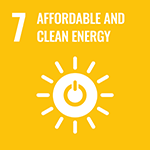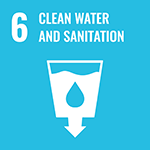Development of Advanced Hybrid Ocean Thermal Energy Conversion (OTEC) Technology for Low Carbon Society and Sustainable Energy System: First Experimental OTEC Plant of Malaysia
Environment / Energy (Carbon Neutrality)
 Malaysia
Malaysia
Principal Investigator


Prof.
Ocean Thermal Energy Centre, University of Technology, Malaysia (UTM)
Dato’ Ir Dr. A. Bakar Jaafar
ODA Recipient Country
Malaysia
Research Institutions in Japan
Saga University / The University of Tokyo / AIST
Research Institutions in Counterpart Country
University of Technology, Malaysia(UTM) / University Putra Malaysia(UPM) / University of Malaya / University Kebangsaan Malaysia / University Malaysia Terengganu
Adoption fiscal year
FY 2018
Research Period
5 Years
Overview of the Research Project
Develop an OTEC Malaysia Model with an innovative hybrid ocean thermal energy conversion system at its core
This project will conduct a demonstration of an innovative hybrid ocean thermal energy conversion system (H-OTEC) in Malaysia, a nation that has great potential for ocean thermal energy conversion. The hybrid OTEC system can resolve issues seen with conventional systems such as the cost of heat exchangers and the need for anti-fouling measures. There are high expectations for the system’s ability to desalinate seawater at the same time as generating energy. This project also aims to investigate the economic viability and construct models of systems that can utilize the deepwater raised by OTEC for other purposes in addition to power generation. Furthermore, the project is planning the utilization of research outcomes in society.
Making available new sources of clean power and safe water supplies
Deep ocean water utilized by hybrid OTEC has high added value, including nutritional value. Availability of deepwater can jumpstart the creation of new industries in areas such as farming and fishing, permitting the construction of a sustainable, low carbon Malaysia Model OTEC system that is advantageous to local industry in Malaysia. This model can then be rolled out to other parts of the world, including other Asian and Pacific Island countries.
Photo gallery
Research Project Web site
Press Release
Links
Projects
Contact Us
Japan Science and Technology Agency (JST)
Department of International Affairs
SATREPS Group
TEL : +81-3-5214-8085
Related articles by Category
- Carbon Neutrality
Environment / Energy
(Carbon Neutrality)
 Socialist Republic of Vietnam
Socialist Republic of Vietnam
Regenerating cassava farm land by storing carbon in the soil!
Transforming the Cassava Production System in Vietnam by Establishing Regenerative Farming and Smart Starch Supply Chain Management
- Malaysia
Environment / Energy
(Global-scale environmental issues)
 Malaysia
Malaysia
Recover water, electric power, and mineral resources from palm oil mill effluent!
Development of Palm Oil Mill Effluent (POME) Treatment System for Sustainable Energy Production and Resource Recovery based on Material Innovation
- Asia
Environment / Energy
(Carbon Neutrality)
 Kingdom of Thailand
Kingdom of Thailand
Mobilizing data and models to help reduce traffic congestion in Bangkok!
Data Driven Dynamic Transport Management in Emerging Metropolis for Climate Change Mitigation
- SDGs : Goal.7
Environment / Energy
(Carbon Neutrality)
 Republic of Uzbekistan
Republic of Uzbekistan
Establishing hydrogen production technologies that fully utilize everything from solar power to underground resources!
Development of Innovative Technologies for Efficient Generation of Green/Blue Hydrogen for Realization of Carbon-neutral Society with Consideration of Industrial and Environmental Characteristics in the Region






















